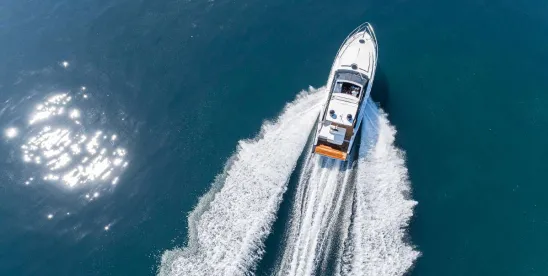Michigan comes in sixth on the list of states with the highest per capita boat ownership. Boating is, for the most part, a fun and relaxing part-time sport, but it is not without risks. Approximately 3,300 personal injuries and 700 deaths related to boating accidents occur every year.
If a boating accident that results in injury or death on Michigan waterways results from another party’s negligence, the victim has a right to compensation from the negligent party. This guide can help you with everything you need to know about pursuing a boating personal injury claim.
Common Types of Boating Accidents on Michigan Waterways
The most prevalent type of boating accident in Michigan is collisions. They can occur between two or more boats or when one boat hits a fixed object, such as a dock, bridge, or pier. In some cases, it can be caused by floating objects.
The second most common type of accident is grounding, which involves running aground on a sand bar or the beach, followed by capsizing when a boat turns upside down due to shifting weight, overloading, or rough waters. Some accidents involve passengers falling overboard or explosions on a vessel.
Causes of Boating Accidents
Boating accidents do not happen out of the blue; there is always an underlying cause of the accident, and in almost 75 percent of the cases, an operator will be at fault. The most common causes of boating accidents on Michigan waters include inexperience, speeding, intoxication, distraction, faulty equipment, and crowded waterways. Poor weather can also cause an accident, for example, when weather roughs up the waters, causing vessels to capsize.
Who Is At Fault in a Boating Accident?
Fault for boating accidents lies with the negligent party, the party whose action or inaction leads to an accident. For example, if a distracted boater runs into a parked boat, injuring its occupants, the distracted boater will be at fault and legally liable for harm suffered.
What to Do After an Accident
The most significant risk in a boating accident is drowning, so after an accident, you may need to see if anyone has been thrown overboard and start rescue efforts where possible.
The second thing you want to pay attention to is injuries; if anyone has suffered significant injuries, call 911 to have paramedics come to the scene. If not, it’s still a good idea to get a medical checkup no later than 72 hours after an accident.
Once everyone is out of danger or as you await help, take photos of the scene as part of accident documentation, paying attention to damages, the location of the accident, and the nature of injuries suffered. This is also the best time to gather witness accounts, if any. Lastly, file a boat accident report with the Coast Guard within the specified time based on the nature of the accident. For example, in the event of death, you must file a report within 24 hours and 48 hours for injuries or a disappearance following an accident.
Get a Lawyer
Negligent parties in a boating accident will not readily accept liability, and in most cases, you will deal with the boater’s insurer. They will often put up a fight, so you want to have a personal injury lawyer on your side. Before hiring them, be sure they have handled similar cases before, giving you a better chance of positive outcomes.




 />i
/>i

